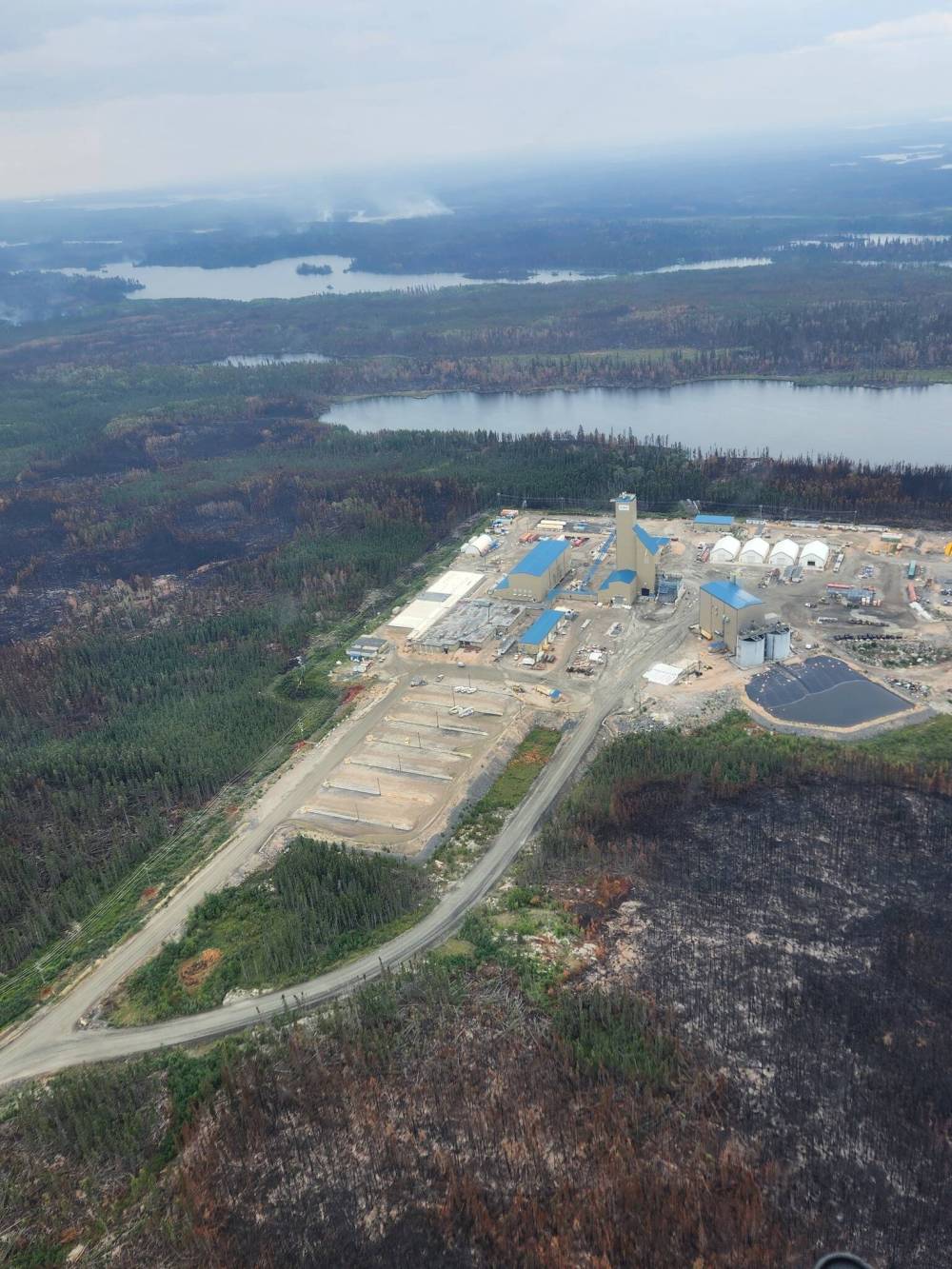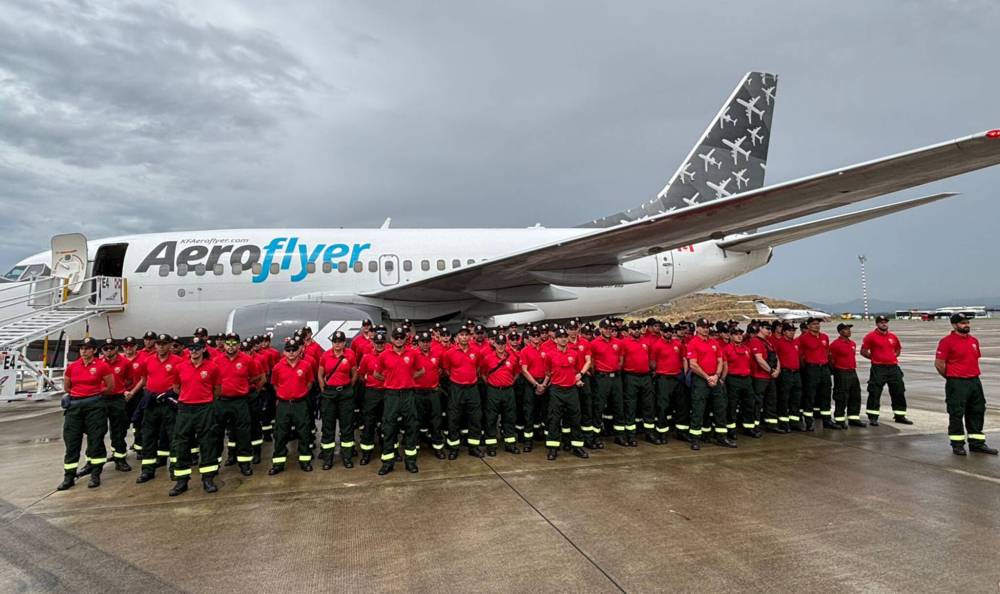Snow Lake prepares for imminent return of 1,000 twice-evacuated residents
Advertisement
Read this article for free:
or
Already have an account? Log in here »
To continue reading, please subscribe:
Monthly Digital Subscription
$0 for the first 4 weeks*
- Enjoy unlimited reading on winnipegfreepress.com
- Read the E-Edition, our digital replica newspaper
- Access News Break, our award-winning app
- Play interactive puzzles
*No charge for 4 weeks then price increases to the regular rate of $19.00 plus GST every four weeks. Offer available to new and qualified returning subscribers only. Cancel any time.
Monthly Digital Subscription
$4.75/week*
- Enjoy unlimited reading on winnipegfreepress.com
- Read the E-Edition, our digital replica newspaper
- Access News Break, our award-winning app
- Play interactive puzzles
*Billed as $19 plus GST every four weeks. Cancel any time.
To continue reading, please subscribe:
Add Free Press access to your Brandon Sun subscription for only an additional
$1 for the first 4 weeks*
*Your next subscription payment will increase by $1.00 and you will be charged $16.99 plus GST for four weeks. After four weeks, your payment will increase to $23.99 plus GST every four weeks.
Read unlimited articles for free today:
or
Already have an account? Log in here »
About 1,000 wildfire evacuees from Snow Lake are expected to soon join thousands of Manitobans who are gradually returning home after firefighters were aided by cool and wet weather.
Mayor Ron Scott said sprinklers were being taken down and essential services, including a grocery store, were starting to be restored to help prepare for residents once provincial officials deem it safe to go back.
“They will basically be giving us the green light in terms of when people can come back, but we do expect it to be soon,” he said by phone from Snow Lake, about 690 kilometres northwest of Winnipeg.

TOWN OF SNOWLAKE / FACEBOOK
Aerial photos of Snow Lake which was evacuated July 10 for the second time this wildfire season.
Snow Lake was evacuated July 10 for the second time this wildfire season, which is Manitoba’s worst on record in 30 years. The first evacuation lasted a week. The second has entered its sixth week.
“It’s certainly been very tough on everybody,” said Scott, who stayed in The Pas until council members returned to the town Monday. “I know everyone is getting frustrated and wants to get back home as soon as possible, and the same goes for all our crews that stayed behind — from firefighters to support (staff) to the command team.
“Everyone is tired. They want this to be over and to get on with their lives.”
When Snow Lake residents are allowed to return home, a welcome centre will be set up to offer physical and mental-health services, a food bank and other supports.
Rain, light winds and cooler temperatures have helped crews make good progress on several large blazes this week. Some communities lifted mandatory or medical-related evacuation orders.
Nisichawayasihk Cree Nation (Nelson House) began a phased return of about 3,000 evacuees Wednesday, Deputy Chief Marcel Moody said.
The status of a 46,000-hectare fire, north of NCN, changed from “out of control” to “being held,” as per the Manitoba Wildfire Service.
Evacuees in Winnipeg are scheduled to return by bus Friday.
“People want to go back because there have been so many issues with accommodations here in Winnipeg,” Moody said.
Officials were concerned about evacuees’ safety in congregate shelters and hotels, and about reports of drug dealers preying on people with addictions, he said.
Some evacuees in hotels had to relocate because they were in rooms that had been previously booked, he said.
Moody said about 600 evacuees who were moved to Niagara Falls, Ont., are expected to fly home next week.
Evacuees with breathing issues or other serious medical conditions were not yet cleared to return to NCN, about 800 kilometres north of Winnipeg.
NCN issued a mandatory evacuation order Aug. 3. It was paused a couple days later, allowing hundreds of residents to remain, after the wind direction shifted.
Manitoba had an estimated 12,830 evacuees as of Thursday morning, with almost 600 in shelters and about 7,125 in hotels, a provincial spokesperson said. The total was closer to 14,000 last week.
The Manitoba Wildfire’s Service’s most recent situation report listed 158 active fires as of Wednesday, including 19 that were out of control.
A provincewide state of emergency is in effect until Aug. 22.

Costa Rican firefighters on their way to Manitoba to help with wildfires.
Snow Lake received 15 millimetres of rain in the 24 hours to Thursday morning, which is expected to keep fire behaviour low for a few days.
The town had received only about 38 millimetres since May 5, Scott said.
“It underscores the extreme drought conditions we’ve been having all summer,” he said.
Scott said 100 firefighters from Costa Rica are set to arrive this weekend, while crews from Mexico and Australia depart. They will join firefighters from Snow Lake and other parts of Manitoba.
“There’s a major push on to to get this fire dealt with and get it put out,” he said. “It’s been a long battle for everybody, but they’ve done an incredible job.”
Snow Lake and nearby mining areas were threatened by an out-of-control fire that was caused by lightning and detected July 1. The blaze, which merged with several others, measured almost 64,000 hectares.
Scott said no structures were damaged in town, despite flames on its doorstep at one point.
“The crews were able to battle that (fire) back. It was a very close fight a couple weeks ago,” he said. “Same for the (Lalor) mine. They managed to save all the area around that mine.”
One cabin and some outbuildings around Squall Lake were lost, he said.
Manitoba Hydro said about 1,300 customers are without power in five northern communities due to wildfires. The Crown corporation said it is unable to estimate restoration times.
Evacuees from Mathias Colomb Cree Nation (Pukatawagan) have been out of their homes since late May, initially due to a nearby fire and now due to an ongoing power outage.
Manitoba Hydro said repairs to wooden poles, power lines and transformers are taking place in remote areas with difficult terrain and little or no road access.
The utility said more than 1,200 poles have been damaged or destroyed, with about 500 repaired or replaced so far.
chris.kitching@freepress.mb.ca

Chris Kitching is a general assignment reporter at the Free Press. He began his newspaper career in 2001, with stops in Winnipeg, Toronto and London, England, along the way. After returning to Winnipeg, he joined the Free Press in 2021, and now covers a little bit of everything for the newspaper. Read more about Chris.
Every piece of reporting Chris produces is reviewed by an editing team before it is posted online or published in print — part of the Free Press‘s tradition, since 1872, of producing reliable independent journalism. Read more about Free Press’s history and mandate, and learn how our newsroom operates.
Our newsroom depends on a growing audience of readers to power our journalism. If you are not a paid reader, please consider becoming a subscriber.
Our newsroom depends on its audience of readers to power our journalism. Thank you for your support.



